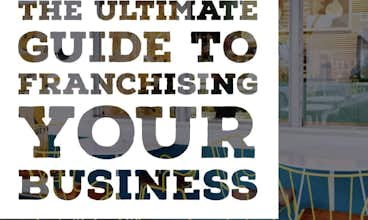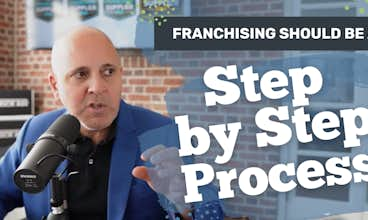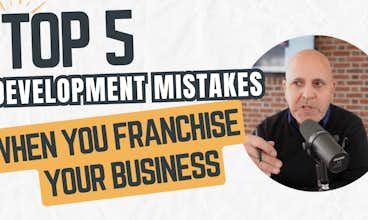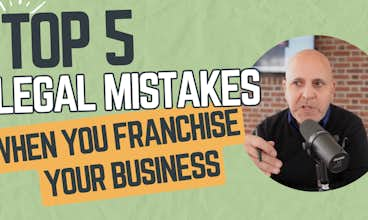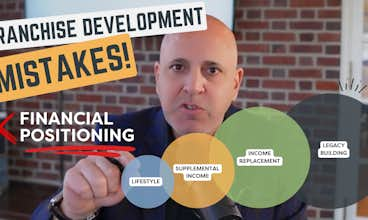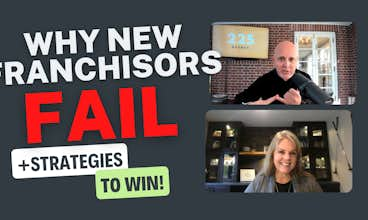Franchising your business is one of the most powerful ways to grow your business — but it’s also a serious financial commitment. If you’re wondering what it really costs to become a franchisor, you’ve probably noticed wildly different numbers online. Some websites say you can franchise for under $20,000, while others suggest you’ll need $500,000 to $1M+.
The truth is somewhere in between. The true cost to franchise your business depends on who you hire, the quality of your legal documents, and the strategy behind your launch. This guide breaks down common expenses, hidden pitfalls, and how to budget smartly for long-term success.
Why the “True Cost” Matters
Many entrepreneurs make the mistake of under- or over-budgeting when franchising their business:
- Too low: relying on “cheap” franchise developers who cut corners on legal compliance.
- Too high: believing inflated cost estimates that bundle years of marketing, staffing, and technology into the “franchise cost.”
The reality: the legal and compliance foundation typically costs $26,000–$38,000 through a fixed-fee Franchise Launch program. From there, you can phase in marketing and systems over time, scaling as your brand grows. Looking for a detailed cost breakdown of these initial costs? Visit our How Much Does it Cost to Franchise Your Business? page for a step-by-step estimate of legal, registration, and first-year sales expenses.
Phase One: Franchise Development
Every franchisor must go through this development phase to become legally authorized to sell franchises. Typical costs include:
- Franchise Disclosure Document (FDD) Development – $15,000–$45,000
- Operations Manual Development – $0–$30,000
- Corporate Entity Formation – $400 filing fees (plus initial capitalization)
- Audited Financial Statements – $2,500–$5,000
- State Registration and Filing Fees – $250–$750 per state
- Trademark Registration Filing Fees – $350–$525 per class
Pro Tip: Work with a franchise law firm, not a “developer,” to ensure your FDD, Item 19, and agreements are legally compliant and growth-ready.
Phase Two: Going to Market
Once your FDD is complete, you’ll enter the go-to-market stage. Here, costs vary widely depending on your sales goals and how aggressively you plan to grow in year one.
Typical year-one sales and marketing costs:
- Franchise Sales Website – $2,500–$15,000
- Franchise Brand Positioning – $0–$2,500
- Sales Presentations & Materials – $0–$3,000
- Public Relations & Validation – $15,000–$25,000
- Advertising – $0–$20,000
- Broker/Conference Participation – $5,000–$10,000
Total estimated year-one sales costs: $22,500–$75,500.
Hidden Costs and Budgeting Pitfalls
Some of the biggest costs of franchising don’t show up until later. Smart founders anticipate these expenses early:
- Broker Commissions – 30–50% of your initial franchise fee per deal.
- Technology Platforms – CRM and compliance software ($200–$800 per unit, per month).
- Staffing – hiring franchise support roles ($60,000–$120,000 per person annually).
- PR Retainers – monthly agency fees beyond launch campaigns.
- Trade Shows & Industry Events – $5,000–$25,000 annually for visibility and networking.
Not every new franchisor needs all of these immediately — but knowing they exist helps you build a realistic multi-year budget.
The Myth of Million-Dollar Franchise Costs
Some articles suggest it costs $500,000–$1M+ to franchise a business. While those numbers aren’t wrong, they bundle multi-year marketing, staffing, and infrastructure costs into a single “franchise cost.”
The real picture looks different:
- Legal & Compliance Foundation – $26,000–$38,000
- First-Year Sales & Marketing – $22,500–$75,500
- Optional Multi-Year Growth Investments – scalable based on your goals
This phased approach is why many successful brands start lean — then reinvest as franchise fees and royalties begin to flow.
FAQs: True Cost of Franchising
The legal foundation typically starts at $26,000 for FDD development, agreements, registrations, and trademarks.
They include multi-year budgets for staff, PR, brokers, and technology. Those are growth costs, not startup costs.
Yes. By phasing your spending — starting with legal compliance, then layering marketing and broker strategies — you can spread costs over several years.
Broker commissions, technology platforms, and franchise support staffing are the most common overlooked expenses.
Start with a franchise lawyer, not a developer. Fixed-fee legal programs protect your brand and give you a compliant foundation to scale.
Ready to Franchise the Right Way?
At The Internicola Law Firm, we’ve helped 300+ brands franchise their businesses with fixed-fee legal programs and growth-aligned strategies.
Ranked the #1 Franchise Law Firm in the U.S. by Entrepreneur Magazine, we combine legal compliance with growth support to help you scale with confidence.
📞 Call (800) 976-4904 or → Schedule Your Free Franchise Strategy Call.
